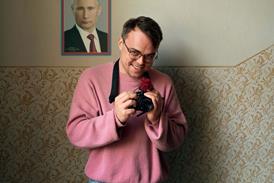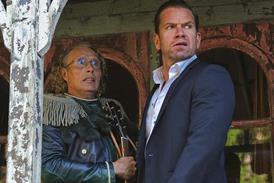- News
- Reviews
- Features
- Festivals
- Box Office
- Awards
 How Ryan Coogler and his trusted team created ‘Sinners’: “Like putting together one last heist”
How Ryan Coogler and his trusted team created ‘Sinners’: “Like putting together one last heist” Why Russell Crowe and Rami Malek proved a dream duo for ‘Nuremberg’ director James Vanderbilt: “They vibrate at different frequencies”
Why Russell Crowe and Rami Malek proved a dream duo for ‘Nuremberg’ director James Vanderbilt: “They vibrate at different frequencies”![[Clockwise from top left]: Paul Thomas Anderson, Chloe Zhao, Ryan Coogler, Park Chan-wook](https://d1nslcd7m2225b.cloudfront.net/Pictures/274x183/9/0/0/1467900_writerdirectors_192733.jpg) Who are the early Oscar and Bafta frontrunners in the director and screenplay categories?
Who are the early Oscar and Bafta frontrunners in the director and screenplay categories?
- Subscribe

Subscribe to Screen International
- Monthly print editions
- Awards season weeklies
- Stars of Tomorrow and exclusive supplements
- Over 16 years of archived content
- Global production
Feature - The Open Doors Projects 2008
2008-08-01T00:00:00
Faith (Guatemala)
SIGN IN if you have an account
Do you want to keep reading?
Register for free access to five articles a month

Subscribe today and unlock access to:
- Unlimited film & TV news, reviews and analysis on Screendaily.com
- All print and/or digital editions of Screen magazine
- Breaking news alerts sent straight to your inbox
- Digital festival and market dailies
- Weekly awards magazines
Access premium content Subscribe today
If you have an account you can SIGN IN now
Subscribe to Screen International
Screen International is the essential resource for the international film industry. Subscribe now for monthly editions, awards season weeklies, access to the Screen International archive and supplements including Stars of Tomorrow and World of Locations.
Find out moreSite powered by Webvision Cloud













